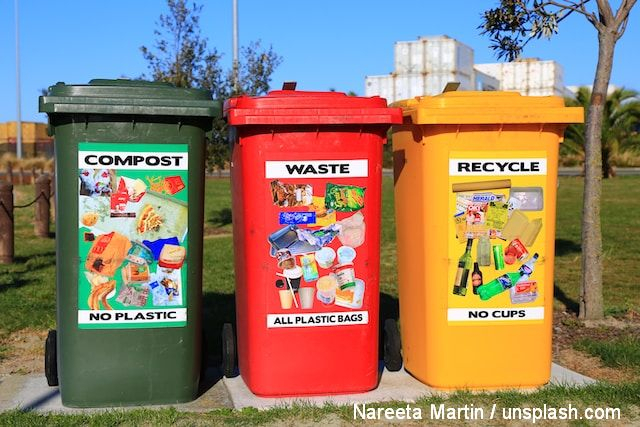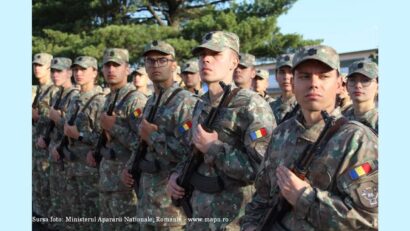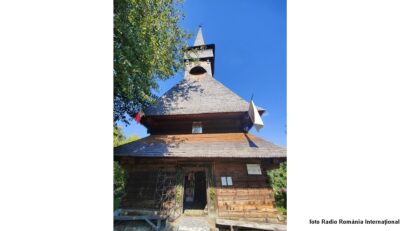The Hora of Recycling in Romania
Romanians lag behind in Europe in recycling

Roxana Vasile, 22.05.2024, 13:06
Romanians lag behind in Europe in recycling. As the European Union asked all member states to reach a rate of 55% by 2025, in the hope of at least partially rectifying the situation, in Romania, towards the end of last year, the Guarantee-Return System – SGR – was launched, the largest national circular economy project at the moment.
The “cogs” of the mechanism are the 19 million Romanians: any citizen pays a guarantee of 50 bani (about 10 eurocents) when buying a beverage in glass, plastic or metal packaging of up to 3 liters. After emptying the container marked with the SGR logo, it can be taken to any return point provided by sellers. In exchange for the empty container, the consumer receives back the value of the originally paid guarantee either in cash or in the form of a voucher. The ambition of the authorities is to withdraw from the market, every year, approximately 7 billion such containers which, after being counted, sorted and compacted, will be sold to recyclers.
Administered by RetuRo, the Guarantee-Return System is therefore considered one of the important levers for reaching the collection and recycling targets imposed by the European Union. Its implementation would also have a significant beneficial role on the recycling behavior of Romanians, who are not exactly disciplined in this regard. Mihaela Frasineanu, State Counselor in the Prime Minister’s Chancellery, talks about other benefits of SGR:
“The hora is a traditional Moldovan dance, but it is also a symbol of the circle, a symbol that can also be found on the RetuRo logo, and let’s take it a little further! It is the symbol of the largest circular economy project in Romania! It is the symbol of a project involving more than 19 million people, and it is the symbol of environmental responsibility, first and foremost. If we only think about the fact that we are making Romania cleaner, and it is still an extremely important step forward! But beyond that, there are things we don’t see for the first time. We don’t see that we’re talking about resource efficiency, we don’t see that we’re talking about reducing our carbon footprint. We do not see that we are also talking about an efficiency of human resources. We don’t see that we are also talking about the financial resources that are involved, and the financial responsibility. We are talking about social responsibility, and we are also talking about economic responsibility. “
On May 13, RetuRO opened near Bucharest, in Otopeni, the fourth regional center for counting and sorting returned containers, after those in the counties of Cluj, Brașov, and Timiș. With an area of 10,000 square meters, and equipped with advanced equipment, the new center has an annual capacity to count approximately 900 million containers, and a twice higher sorting and processing capacity by material type (PET, metal, glass) – 1.8 billion packages.
Gemma Webb, CEO and President of the RetuRO Board, said: “The Guarantee-Return System is in a permanent dynamic, Romanians are returning more and more containers, and the evolution we are recording from one moment to the next reflects more and more involvement from consumers. In the next three months, we plan to open other counting and sorting centers in Dolj, Bacău, and Prahova counties.”.
Alice Nichita, from the Association of Soft Drinks Producers for Sustainability, added:
“There are very few Guarantee-Return Systems already in place that have inaugurated a 4th center, and we inaugurated it in less than six months from the start of the system. I don’t think there is any other system that has 10 collection and sorting centers, such as RetuRo proposes in the first year of operation. It is such an ambitious project, and one that has every chance of proving its success. There were many steps, really, because such projects are not sprints or tests, they are things that you have to build efficiently from day one, and not give up on principles, and these principles we want to see implemented, and these principles we want to see bear fruit. And I proudly confess to you that when we receive requests from colleagues from other countries, especially from Western Europe, to learn from us, to come here on a working visit, to see what are the steps, and lessons on that we have learned during this project, this makes us very proud.”
The Republic of Moldova is one of the states interested in taking over this good Romanian practice. Sergiu Lazarenco, Minister of the Environment from Chisinau, said:
“We propose that, by 2027, the Guarantee-Return System will also operate in the Republic of Moldova. We are aware that the implementation of this system involves considerable challenges and responsibilities, but it is certain that, by implementing this system, citizens will become more responsible, the environment will become cleaner, we will develop the circular economy, we will create new opportunities for economic development and, most importantly , we will also create new jobs. I am very happy to see that the citizens on both banks of the Prut are more and more aware and concerned about the problems of the environment. This leads us to continue with more determination, to undertake complicated policies and actions, which are so necessary for the environment. We can no longer postpone the implementation of environmental reforms. By investing in environmental projects, we invest in the future!”
For the moment, in Romania, not all sellers have registered with the Guarantee-Return System, or some of those registered want to leave the “recycling hora” already, claiming a difficult transition. Sometimes, the recycling machines located on the premises of sale points do not work, are full, or do not read the barcodes of the packaging that must be returned. Small neighborhood stores do not have adequate spaces to store PETs, cans, or empty bottles while waiting for trucks to pick them up. As for the customers, some are unhappy that they cannot use the vouchers in any store they want, but only in the one where they recycled. But, despite the hiccups inherent in any start-up, SGR has grown steadily since its debut in November 2023. In April alone, 160 million containers were collected, and the authorities’ ambition is to overstep the threshold of 200 million in a single month. This means that, with the participation of 19 million Romanians, that many beverage containers will not end up in landfills, in riverbeds, or in forests.






























